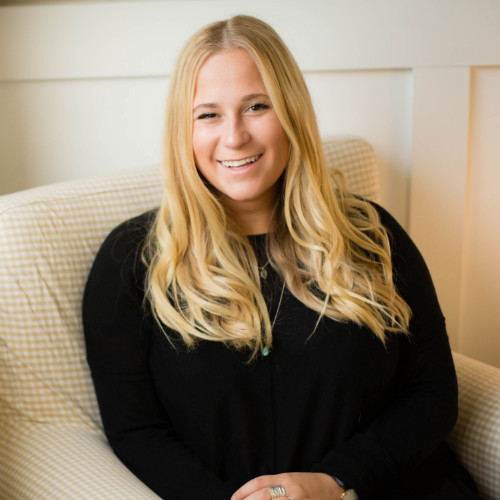by Puneet Parhar (work-study student)
Did you know that Bloomberg Nursing has an accessibility advisor on site?
Sarah Goodfield Weinstein is Bloomberg Nursing’s designated accessibility advisor and she is passionate about mental and physical health as well as the impact of accessibility programs. She says she was drawn to work in Accessibility Services at the University of Toronto because of its holistic approach to helping students participate equitably in academic and clinical environments.
“I believe that proper access and support to accommodations can help improve a student’s well-being and enable individuals to thrive in educational settings,” says Goodfield Weinstein about U of T’s Accessibility Services.
Working within professional programs like nursing, interests Goodfield Weinstein because it allows her to be creative when determining accommodations, resources, and support for clinical, academic, and experiential environments. She is also able to draw upon her educational background in occupational therapy.
A meeting with an accessibility advisor at Bloomberg Nursing can help students in various ways, including exploring what accommodations, resources, and support strategies exist to enable their equitable participation in an academic environment. Some supports include courses, test accommodations, and environmental adaptation. Goodfield Weinstein emphasizes that Accessibility Services is available to those in undergraduate and graduate programs, as well as clinical and research-based programs.
When setting up a meeting with an Accessibility Advisor, students will complete their registration online, and be triaged to advisors based on a number of factors. While Goodfield Weinstein is the on-site advisor for Bloomberg Nursing and can accommodate drop-ins on Wednesday and Thursdays in HS 130C (see schedule), she notes that not all students will necessarily be assigned to her as there may be situations where advisors in the central office are best positioned to support these students.
Once assigned to an advisor, students will meet for an intake appointment where they will share what led them to connecting with accessibility services, their educational history, and more.
“As advisors, we make sure that we explore students’ lived experiences concerning disabilities and how they have successfully navigated challenges in the past to better understand how disability affects them in different environments,” says Goodfield Weinstein.
Meeting with accessibility advisors can help students develop a plan to change how they learn in different contexts. These plans are built to provide resources, accommodations and support, such as meeting with learning strategists, connecting with different skill building groups, academic success officers or Adaptive technologists to best help students throughout their academic and professional journeys.
Goodfield Weinstein stresses that students can follow up with Accessibility Services as needed to assist them throughout their academic careers. She encourages students to follow up when encountering challenges, but also when having positive experiences in their learning to reinforce what is working for them. She notes that students are certainly not required to use accommodations if they do not feel comfortable doing so; Accessibility Services exists to help students explore their options to make the most informed decisions that work for them.
In terms of timing, Goodfield Weinstein recommends meeting with Accessibility Services well in advance of the start of an academic semester or clinical placement, usually around six to eight weeks in advance. Although, she encourages students to always contact the office, as the process can be started anytime during a student’s academic career.
If you are unsure about your eligibility for Accessibility Services, Goodfield Weinstein recommends contacting Accessibility Services, where any questions regarding registration and eligibility can be answered by front desk staff. Students will typically need to submit documentation regarding their disability, from which the Intake Coordinator will review and contact you about next steps. If you are still unsure about your eligibility, the Intake Coordinator is available to book one-on-one consultations for further discussion prior to your registration.
Accessibility Services is located at 455 Spadina Avenue, 4th floor, Suite 400,and can be reached at 416-978-8060 or accessibility.services@utoronto.ca for further questions.
